Our People
The challenges we have identified transcend the engineering, physical and social sciences and cannot be addressed in the absence of a genuinely inter-disciplinary approach. The research team reflects the interdisciplinary challenge.
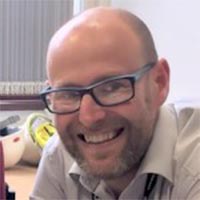
Dr Richard Kirkham,
The University of Manchester
Richard is a Reader in Civil Engineering at UoM, Deputy Director of the Thomas Ashton Institute, and member of the senior leadership team in the Manchester Urban Institute. Richard’s research on government major project delivery has attracted funding from ESRC and he provides expert advice to government on aspects of risk management in the context of major projects. He is also leading the Cabinet Office Science and Engineering Network workstream on ‘knowledge transfer’ having successfully completed an ESRC funded secondment into the Cabinet Office in 2016.
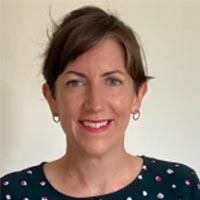
Dr Constance Smith,
The University of Manchester
Connie, a Lecturer in Anthropology at The UoM School of Social Sciences, focuses on the anthropology of architecture, time, and urban change. She explores shifting landscapes of buildings, planning, and infrastructure, examining how materialities inflect engagement with the past and future. Her policy work with the Building Remediation Directorate at DLUHC advising the Residents Voice team on improving tenants’ experiences of the remediation program will offer valuable expertise to the Network.
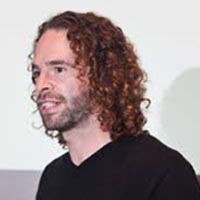
Professor James Evans,
The University of Manchester
James, a Professor in Geography, and current Head of Department, researches how cities become smarter and more sustainable. He has published widely, with over 40 peer-reviewed papers and two authored books, and his work on Urban Living Labs has been foundational across the social sciences. His research explores the geographical aspects of smart cities and urban sustainability, primarily contributing to the disciplines of Geography and Urban Studies. James has a long-standing interest in the relationship between environmental science and urban thought.
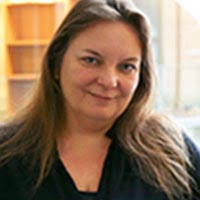
Sharon Clarke is a full Professor in Organisational Psychology. She has published widely around culture and safety leadership, in some of the top international journals for organisational psychology and safety science. In addition, she has co-authored the books ‘Managing the Risk of Workplace Stress’ with Professor Cary L. Cooper (Routledge, 2004) and ‘Human Safety and Risk Management, 2e’ with Professors Ian Glendon and Eugene McKenna (CRC Press, 2006). Her research interests span health and safety at work, safety climate, leadership, and occupational health psychology
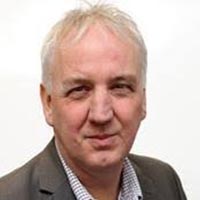
Professor Mark Elliott,
The University of Manchester
Professor Mark Elliott is central to confidentiality and privacy since 1996, and a key international researcher in Statistical Disclosure. He collaborates widely with non-academic partners, particularly with national statistical agencies where he has been a key influence on disclosure control methodology used in censuses and surveys and where the SUDA software that he developed in collaboration with colleagues in Computer Science at Manchester is used. Mark stands out for his interdisciplinary breadth with publications in stats, computer science law and social science journals.
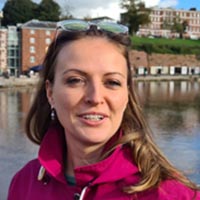
Dr Maya Vachkova,
University of Exeter
Maya is a systems thinker and a facilitator with a passion for social issues and participatory organisational transformations. Maya holds an LLM, an MA in Peace, Conflict and Development and a PhD in Systems Thinking. Maya is Programme Director for the MSc Systems Thinking in the Public Sector – an applied Apprenticeship for civil servants.
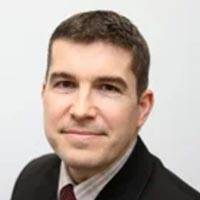
Professor Duncan Shaw,
The University of Manchester
Duncan Shaw, Professor of Operational Research and Critical Systems, also serves as Honorary Professor at HCRI. He has attracted research funding in excess of £15.2m, frequently a assesses for research councils (e.g. ESRC, EPSRC), provides expert reviews for government, and collaborates with organizations on safety and security issues. In 2020, he won the British Standards Institute annual award for Standards Maker. He was also part of the team that won the award for their fast-track of the standard on “Safe working conditions during COVID-19 pandemic”.
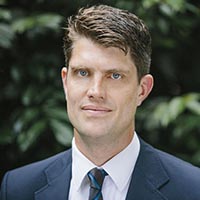
Professor Philipp Thies,
University of Exeter
Philipp’s research interest lies in the reliability engineering of renewable energy technologies with a focus on offshore energy. A focus of his work has been on critical components such as dynamic submarine cables and mooring for floating offshore wind.
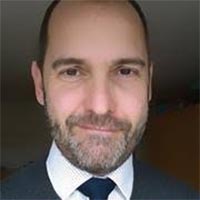
Professor Paul Nightingale,
The University of Sussex
Paul has completed a substantial amount of policy work on innovation policy in the UK and led NESTA’s Innovation Gap research project.
Paul works on project delivery, trying to understand what drives success in major transformational projects and major R&D projects. This work explores the inherent uncertainty in complex projects and how it can best be managed. This work looks at how project tools can help co-ordinate the work of many diverse actors towards a desired end, and how the final aim of a project can change over time.
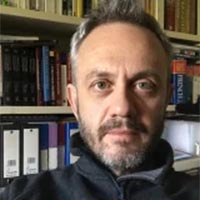
Professor Michael Lewis,
The University of Bath
Mike’s research evolved from effective manufacturing practice to efficiency and effectiveness in diverse service sectors, such as fast fashion retail, care homes, management consultancy and nuclear storage. He contributes to supply chain research at Bath, served on the Advisory Council to the Chartered Management Institute, and recently a member of a government expert group. He is currently a theme leader for the Cabinet Office/IPA Project Excellence Initiative and an academic scholar in the Cornell Institute for Healthy Futures.
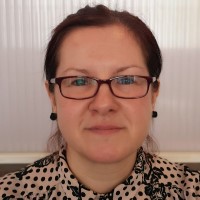
Vicky Turner,
SALIENT Hub and Programme Manager
Vicky works across a multidisciplinary team and leads on delivering a programme of inclusive networking events and engagement activities to connect the research community with industry and wider stakeholders to ensure research efforts are aligned, complementary and relevant to priority themes.
She will commission and manage the devolved funding portfolio, and will also lead the team to deliver the core research work packages, building on the cross-cutting expertise of the co-investigator team.

Angel Harper
SALIENT Project Officer
Angel supports the hub and programme manager, contributing to all stages of set up and management of the Hub including hub set up, stakeholder engagement, financial management, reporting to key stakeholders as well as the funder and management of the Hub team.
She acts as a point of contact for a programme of inclusive networking events and engagement activities to connect the research community with industry and wider stakeholders to ensure research efforts are aligned, complementary and relevant to priority themes.
Angel manages day to day processes on behalf of the hub manager to commission and manage the devolved funding portfolio.

The Thomas Ashton Institute for Risk and Regulatory Research
Supporting the programme are Helen Kreissl and Darren Clement from the Thomas Ashton Institute for Risk and Regulatory Research. The team are uniquely placed to deliver an interdisciplinary and multidisciplinary research programme in the context of security and resilience, with the right mix of skills to address the whole problem. By linking their extensive range of networks, the team can accelerate routes to impact.




